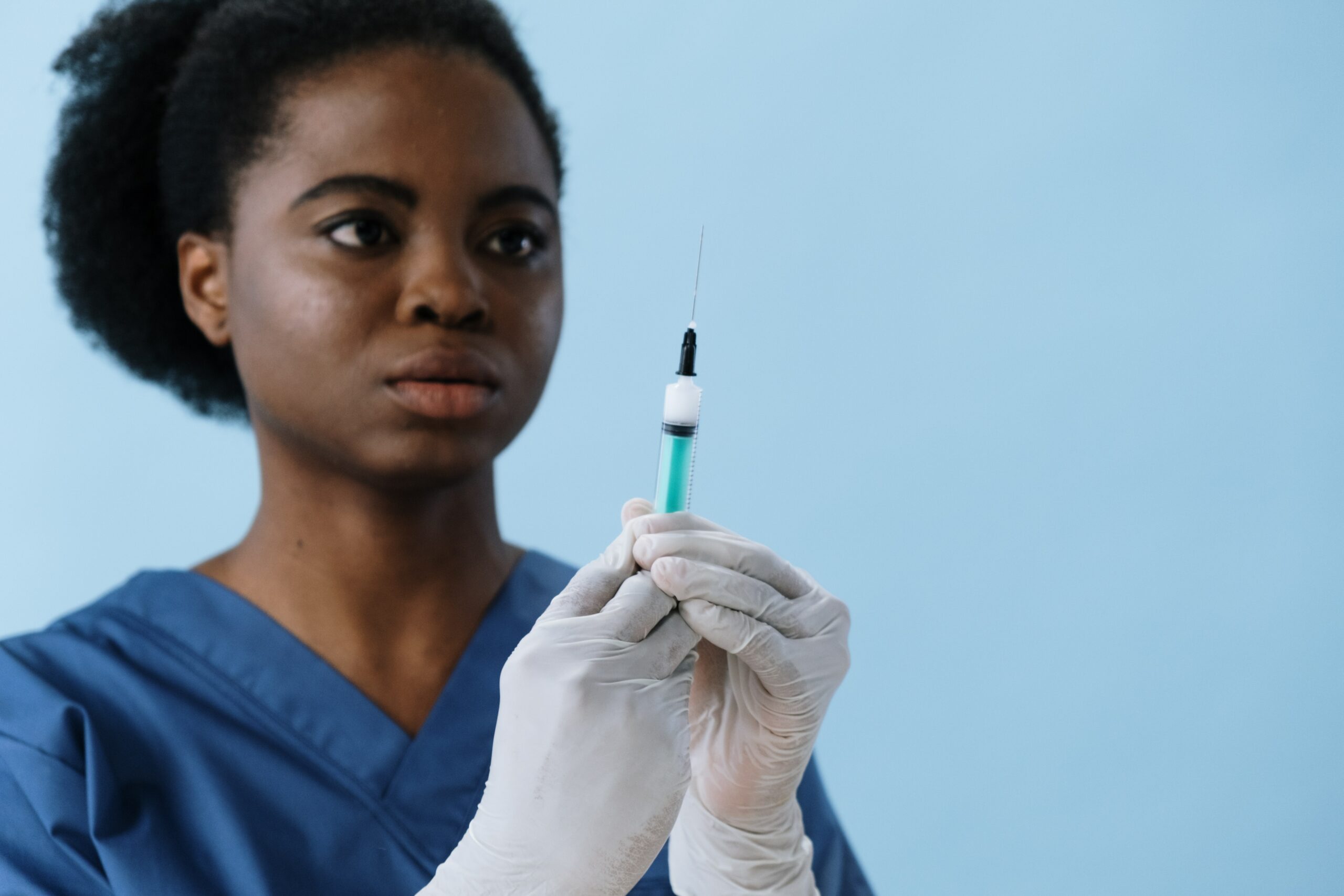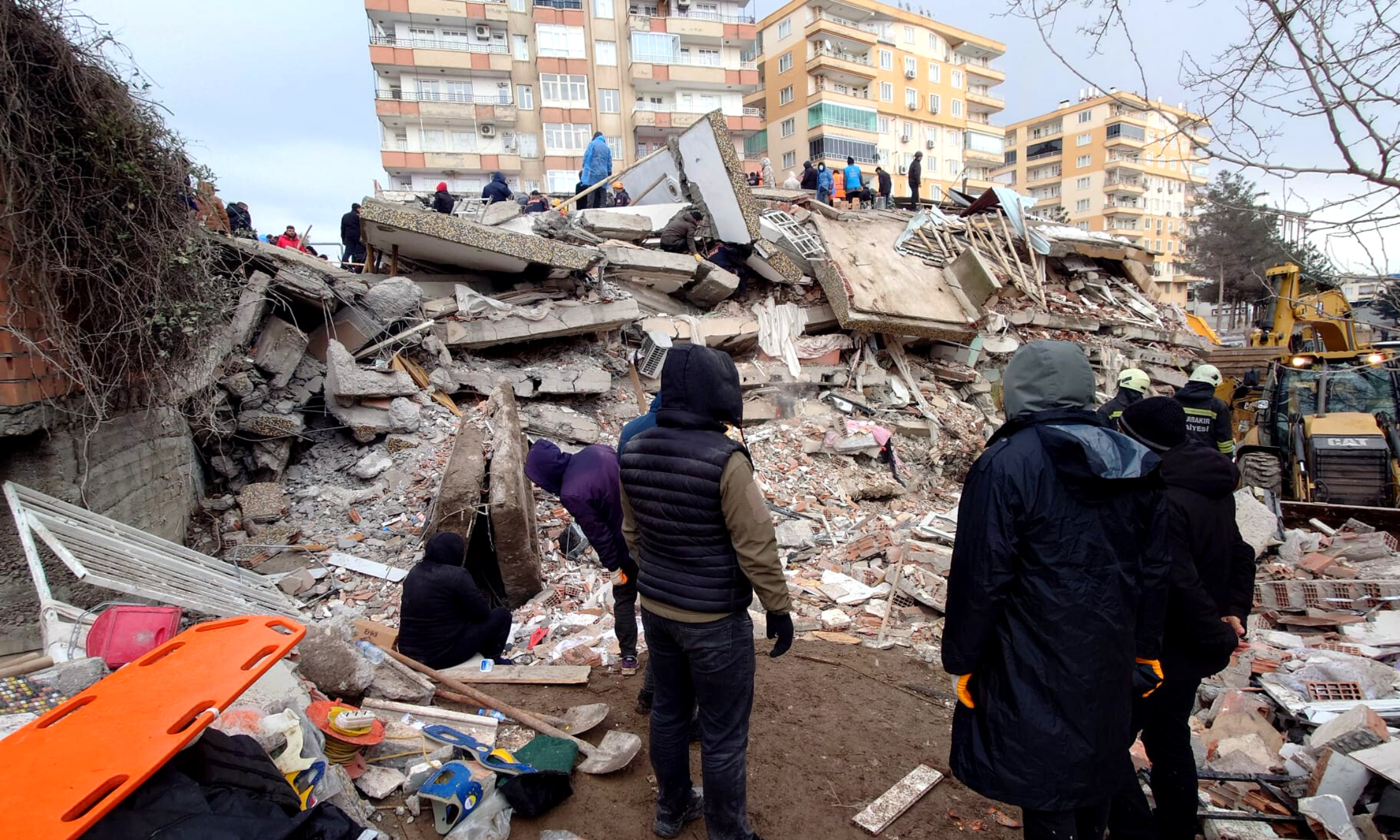
photography by cottonbro / Pexels via Canva
How to talk to family about the vaccine after their worst fears have been confirmed
After the new concerns with the AstraZeneca vaccine, we talk to two Black doctors about how we can put our worried loved ones’ minds at ease.
Niellah Arboine
10 Apr 2021
Speaking to a family member on the phone a few weeks back about the vaccines, they mentioned a link between blood clots and the AstraZeneca vaccine, and if I’m honest I internally rolled my eyes and chose to change the subject quickly. Sadly, I didn’t take her worries that seriously at first. But after doing my own research and watching the news, they were right – there’s growing evidence that the Oxford/AstraZeneca vaccine is in fact linked to a rare blood clot and some countries have stopped using that particular vaccine altogether.
While it’s reported only one in a million may die from the rare blood clot, according to the Guardian, new data shows the risk of blood clots may be as high as one in 100,000. Countries like Canada, Germany, France and Italy temporarily halted the vaccine and now Wales is rolling out a third Covid-19 vaccine, Moderna, which will be offered to under 30s. With Black people in the over 70s category having the lowest rate of uptake for the vaccine out of any other group – now this news could potentially set the vaccine uptake back even further. Even I, someone who is eagerly awaiting that NHS text, has feelings of anxiety and concern at the news.
So, with many of our family’s biggest fears come true, how exactly do we talk to them about this, and what’s the best way to encourage them to still get their vaccine?
To start with, a government spokesperson has said: “The Oxford/AstraZeneca vaccine is safe, effective and has already saved thousands of lives. As the MHRA – the UK’s independent regulator – and the JCVI have said, the benefits of the vaccine far outweigh the risks for the vast majority of adults.”
And the family of Neil Astles, a solicitor who died of a blood clot after getting the Oxford-AstraZeneca vaccine is still asking for the public to take it. Speaking to The Times they said: “If we all have the vaccine, a few of us might have a blood clot but the evidence is that fewer people will die. We trust the process, we trust the regulator.
“We’ve seen what Covid has done. We’ve seen the disproportionate effect that it’s had on our communities and we know that the vaccines work”
Dr Sarah Ann Filson
The benefits outweigh the risks, infectious diseases and microbiology specialist Dr Sarah Ann Filson tells me. “We’ve seen what Covid has done. We’ve seen the disproportionate effect that it’s had on our communities and we know that the vaccines work.” But even with that said, feeling fearful is only natural, especially when we’re all receiving so much information in a short space of time. For some people, this can feel overwhelming. Dr Filson recognises this: “I think it’s valid hesitation – people have valid concerns about the safety, but they’re all concerns that can be addressed by talking to somebody who actually knows what they’re talking about.”
gal-dem columnist and Sexual and Reproductive Health Doctor, Annabel Sowemimo agrees. “Firstly, I think it’s really important to acknowledge that fears and concerns around the vaccine are valid,” she points out. “It’s really easy to dismiss people’s claims”. Historically there have been legitimate worries behind why some people in Black communities don’t want to be vaccinated.
“Medical professionals were some of the first people to get vaccinated,” Dr Sowemimo reminds me. “We also have to evaluate the evidence and have fears and concerns for ourselves … We all have to do that work.”
When it comes to reassuring loved ones we must remember, although there is a link, It is still a rare type of blood clot. “It’s higher for those people with low platelets (cells in our blood that stop us bleeding), about 20 million AstraZeneca vaccines have been given and there have been no more than 25 cases of those blood clots,” Dr Sowemimo explains. “It’s not like getting the traditional blood clots that people might be familiar with,” she adds. “It’s a very small number of people affected.”
And moreover, a vaccine’s risk factors are always weighed up. An generally speaking the criteria for who can get a vaccine is differs based on people’s medical history.
Vaccines aren’t the only way of getting blood clots. Dr Filson explains that blood clots are actually far more common if you contract Covid. “The virus has a high rate of thrombosis,” she explains, especially in the lungs, head and legs. “A lot of people who’ve died, or had long term complications of Covid have been because actually they’ve had a clot … it’s something that’s not talked about completely.”
The combined contraceptive pill’s rare side effects also include blood clots. The inquest into Fallan Kurek’s death, a 21-year-old who died due to side effects of the pill, reported that “of every 10,000 women taking the combined Pill, on average six would develop blood clots”. And pregnant people are five times more likely to get blood clots than non-pregnant people. This isn’t to diminish the lives lost or concern but it does put things into perspective.
“With my own family members, I made sure I fed them small bits of information and kept on having conversations with them”
Dr Annabel Sowemimo
“Time is key” to approaching this subject with family, Dr Sowemimo says. “With my own family members, I made sure I fed them small bits of information and kept on having conversations with them over a period of time in the run-up to them being offered their vaccine,” she explains. Instead of arguing or harassing them which could lead to family members feeling attacked, “it has to be an informed decision”. This can only happen through consistent conversations and really “unpicking what their fears are,” she says.
Dr Filson says that family members might be reassured by other people they know who have had the vaccine and seeing first hand that they are okay. “Nagging definitely isn’t going to help,” she adds. And if people are still worried about the AstraZeneca vaccine, as a last resort Dr Filson says there is a possibility of getting a different vaccine, but warns: “Weigh up that risk of ‘I can wait and get Covid In the meantime, and end up in the hospital, or get the vaccine now and keep an eye out for the possible side effects that may happen with it.”
We have all seen the devastating effects this virus has had, especially on Black, Asian and other marginalised groups. Now more than ever we need to be compassionate, listen to our families concerns and help guide them to an informed decision, based on fact.
This article has been updated





